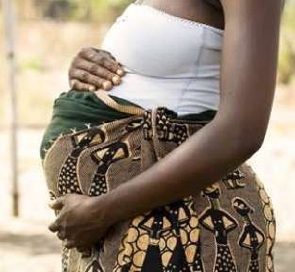Teenage mothers are refusing to go back to school due to stigmatisation in the school environment.
These mothers, after taking a brief exit from school to give birth, say they are taunted and teased by their peers in school, a situation that discouraged them from continuing with their education.
Some teenage mothers at Apewosika in the Nzema East Municipality, who expressed this view at an adolescent health fair, said most of them were already crestfallen by that experience and needed more encouragement to spur them on.
“Our morale, self-confidence and the willingness to continue our education in such an unfriendly environment is what makes most of us drop out of school. We need encouragement and not ridicule,” a teenage mother said.
The fair, which was organised by the Rights and Responsibilities Initiatives Ghana (RRIG), in collaboration with the Alliance for Reproductive Health Rights (ARHR), for out-of-school adolescents, sought to educate them on sexual and reproductive health issues.
It formed part of a Comprehensive Sexuality Education (CSE) programme being implemented by the United Nations Population Fund (UNFPA), which among other things, seeks to reduce unsafe abortion among adolescent girls.
Ms Dorcas Arthur, a Senior Nurse at the Nzema East Health Directorate, counselled the adolescent mothers among the participants not to give up on their education after childbirth.
They, however, responded that they had the desire to go back to school but were discouraged by stigmatisation.
She urged them to ignore the opinions of others and pursue their aspirations by either going back to school or learning a vocation.
Ms Arthur counselled those who had maintained their virginity to abstain from sex as any unintended pregnancy could derail their ambitions.

She cautioned the girls to desist from relying on abortion as a family planning method since that was too dangerous and could result in death.
Ms Faustina Osei Prempeh, the Programmes Manager of RRIG, said it was important for those who could not abstain to avoid unprotected sex to save themselves from pregnancy and sexually transmitted diseases.
She advised them not to succumb to sexual advances from boys and said the boys would always progress in their education, while the girls dropped out of school in the event of pregnancy.
Health News of Sunday, 29 December 2019
Source: ghananewsagency.org













